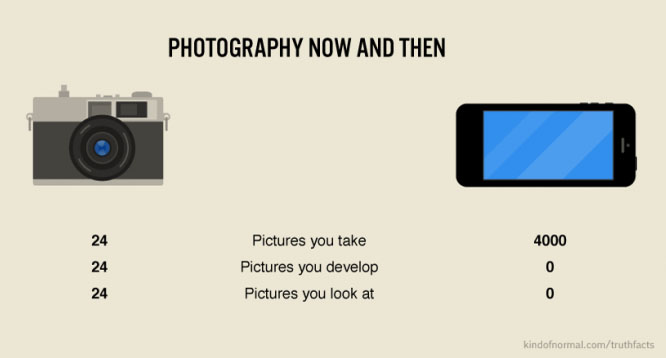From Truth Facts
Daily Archives: May 12, 2015
Technology and the future of work
Our Technology and Democracy research project had a terrific talk this afternoon by Mike Osborne of the Oxford Martin School about the research that he and Carl Frey published in “The future of employment: how susceptible are jobs to computerisation?”.
That paper is impressive in lots of ways. Unlike many academic research reports, for example, it’s written in pellucid prose. And it’s historically informed — which is unusual in technology publications: the authors know that the issue of the impact of machinery on jobs goes back a long, long way — at least to Elizabethan times with William Lee and his request for a patent on his stocking frame loom.
But most importantly, the Frey-Osborne study is the best analysis to date of what we in our project regard as one of the most significant puzzles of our time: namely what does the combination of infinite computational power, big data, machine learning and advanced robotics mean for our future? Or, to quote the title of Norbert Wiener’s book, what will constitute “the human use of human beings” in a digital future?
What preoccupies us is the question of whether we now stand on a hinge of history. Are there things about digital technologies which make our situation and prospects different from the disruptions that our ancestors faced when confronted with the seminal general-purpose technologies of the past? Can we say with any confidence that this time it’s different?
Mike’s presentation provoked lots of thoughts…
The first is the objection often made by historians and economists who argue say that apocalyptic concerns about digital technology are just outbreaks of a-historical hysteria. Historically, they say, technological progress has always had two conflicting impacts on employment. One is the overtly destructive impact — the leading edge of the Schumpeterian wave, if you like. The other is the capitalisation effect, as companies start to enter industries where productivity is relatively high, leading to the expansion of employment in these new or revitalised industries. So, according to the sceptics, although automation definitely taketh away, it also giveth.
But if I’ve understood Mike and Carl’s work correctly, this time it might be different, for two reasons.
-
One is that whereas automation historically served to eliminate manual and/or highly routinised tasks, the new digital technologies mean that automation is remorselessly moving into work domains that have traditionally been seen as cognitive and non-routine.
-
The second is that what happening now is what Brian Arthur called “combinatorial innovation”, which is basically the network effect applied to technological innovation. This means that the pace of innovation is increasing exponentially, which in turn means that our traditional capacity to transition into employment in new areas is going to be outpaced by the pace of change. In which case, the life-chances of a lot of human beings could be undermined or destroyed.
Which leads to a final thought, namely that in the end this will have to come down to politics. Mike and Carl’s analysis is not a deterministic one — they don’t imply that the job-destruction that they think could happen will happen. Decisions about whether to deploy these technologies will, in the end, be made by people –- the owners of capital — not by machines. And if there’s no element of societal control in all this, then the clear implication is that Piketty’s rule about the returns from capital generally outrunning the returns from employment will be turbocharged, with predictable consequences for inequality.
But of course, it doesn’t have to be like that. The economic and productivity gains that result from these technologies could be used for different purposes other than giving even more to those who already have. And that brings to mind Keynes’s famous essay on “The Economic Possibilities for our Grandchildren” in which he saw the possibility that, through technology-driven productivity gains, man “could for the first time since his creation … be faced with his real, his permanent problem — how to use his freedom from pressing economic cares, how to occupy the leisure, which science and compound interest will have won for him, to live wisely and agreeably and well”.
Only politics can ensure that that agreeable prospect comes to pass, however. This isn’t just about technology, in other words.
And now here’s the really strange thing: in all the sturm und drang of our recent election campaign, the implications of computerisation for employment weren’t mentioned once. Not once.
Scribble, scribble
From Virginia Woolf’s diary for Tuesday 11 May, 1920…
“It is worth mentioning, for future reference, that the creative power which bubbles so pleasantly on beginning a new book quiets down after a time, & one goes on more steadily. Doubts creep in. Then one becomes resigned. Determination not to give in, & the sense of an impending shape keep one at it more than anything. I’m a little anxious. How am I to bring off this conception? Directly one gets to work one is like a person walking, who has seen the country stretching out before. I want to write nothing in this book* that I dont [sic] enjoy writing. Yet writing is always difficult.”
Yep. As someone who is working on a book, I can vouch for this.
*She was working on ‘Jacob’s Room’.
A palindromic week
Why data is political
Intriguing piece in Slate:
Imagine visiting Yellowstone this summer. You wake up before dawn to take a picture of the sunrise over the mists emanating from Yellowstone hot springs. A thunderhead towers above the rising sun, and the picture turns out beautifully. You submit the photo to a contest sponsored by the National Weather Service. Under a statute signed into law by the Wyoming governor this spring, you have just committed a crime and could face up to one year in prison.
Wyoming doesn’t, of course, care about pictures of geysers or photo competitions. But photos are a type of data, and the new law makes it a crime to gather data about the condition of the environment across most of the state if you plan to share that data with the state or federal government. The reason? The state wants to conceal the fact that many of its streams are contaminated by E. coli bacteria, strains of which can cause serious health problems, even death. A small organization called Western Watersheds Project (which I represent pro bono in an unrelated lawsuit) has found the bacteria in a number of streams crossing federal land in concentrations that violate water quality standards under the federal Clean Water Act. Rather than engaging in an honest public debate about the cause or extent of the problem, Wyoming prefers to pretend the problem doesn’t exist. And under the new law, the state threatens anyone who would challenge that belief by producing information to the contrary with a term in jail.
Now, why would that be?
The reason is pure politics. The source of E. coli is clear. It comes from cows spending too much time in and next to streams. Acknowledging that fact could result in rules requiring ranchers who graze their cows on public lands to better manage their herds. The ranching community in Wyoming wields considerable political power and has no interest in such obligations, so the state is trying to stop the flow of information rather than forthrightly address the problem.
Ah! Why does this remind me of Ibsen’s An Enemy of the People?


